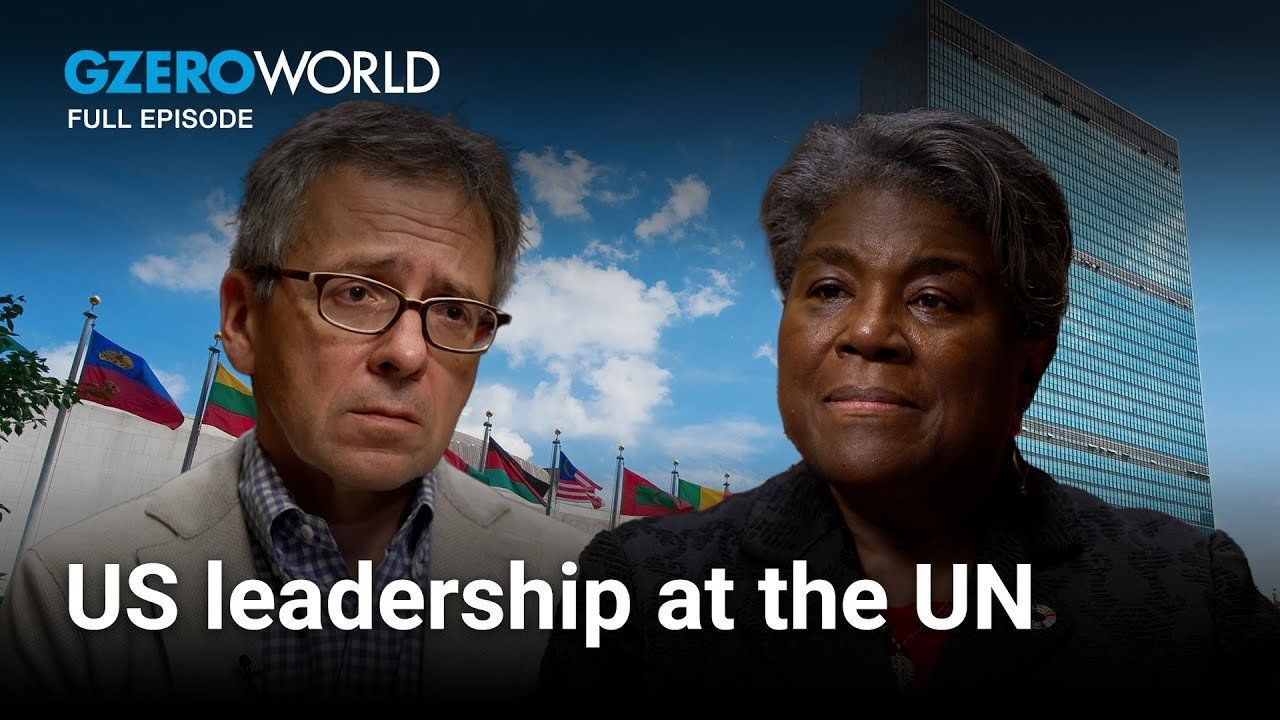GZERO World with Ian Bremmer
Linda Thomas-Greenfield on Russia, Sudan & the power of diplomacy

The UN, Russia, Sudan & the power of diplomacy: Ambassador Linda Thomas-Greenfield | GZERO Media

Can diplomacy solve the world’s most urgent crises?
GZERO World travels to UN headquarters in New York for a special conversation with US Ambassador to the UN Linda Thomas-Greenfield ahead of the United States taking over the presidency of the Security Council for the month of August.
The United States has a lot of priorities for the session, including food security, human rights, and Russia’s ongoing invasion of Ukraine. But with Russia a permanent, veto-wielding member of one of the world’s most powerful diplomatic bodies, how much can really get done?
“What Russia is doing undermines everything that the UN stands for,” Thomas-Greenfield told Bremmer in an interview with Ian Bremmer from the floor of the Security Council chamber. “They are undermining the work of this council by carrying out this unprovoked war on Ukraine.”
Thomas-Greenfield spoke with Bremmer about the contentious relationship with Russia, worries about the world’s food supply after the collapse of the Black Sea grain deal, and the urgency of addressing the ongoing humanitarian crisis in Sudan.
Can the countries of the world put aside their differences and competing interests to effectively deal with the most pressing international security challenges? And what else does the US hope to accomplish during its Council presidency in August?
Watch GZERO World with Ian Bremmer every week at gzeromedia.com/gzeroworld or on US public television. Check local listings.
For many in Iran, it’s a waiting game for how long Ayatollah Khamenei has left to live.
In a 30-minute call on Thursday, President Donald Trump reportedly told Ukrainian President Volodymyr Zelensky he wants to end the war with Russia as soon as possible — aiming for a deal by summer, but ideally within weeks.
Former British ambassador to the U.S. Peter Mandelson leaves his residence after he was released following his arrest by London police on Monday on suspicion of misconduct in public office, following the release of U.S. Justice Department files linked to the late financier and convicted sex offender Jeffrey Epstein, in London, Britain, February 26, 2026.
The ghost of Jeffrey Epstein continues to haunt the world.
Think you know what's going on around the world? Here's your chance to prove it.